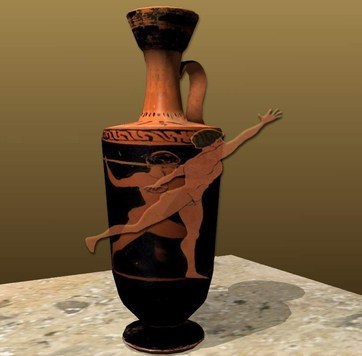Historical research is related to the most ambitious, yet most Utopian human effort to record and organize knowledge in order to reconstruct the past. Ambitious because its aim is nothing else than the reconstruction of the whole world. Utopian because the mobility and complexity of the living world in any given period of time can not be reconstructed in a static image of its recording. These cognitive problems, already known by Heraclitus and Aristotle, continued to preoccupy all those involved in the managements of knowledge and information through the centuries (mainly, but not only, of historical nature). A long series of conventions became accepted, many of them rooted in conventions that are as fundamental as those that allow the function of language and consequently of writing and reading. The use of computers for the production, storing, processing, organization and managements of textual and audiovisual information, and the resulting emergence of the World Wide Web, transformed, disputed or even negated some of the conventions that characterized until then the historical work .

Linearity was for centuries the general rule of reading imposed on every written work, and of course on the various types of “histories”. Even when intertextual references were used, there were just evasions in front of the general inability to have true and generalized interconnection of knowledge. The univocal classification was another obligatory convention since no printed work could manage multiple and intersecting hierarchies (for example to follow a strict temporal and at the same time a strict thematic organization). Another limiting convention, this time due to the medium of historical knowledge , the printed book , was the fact that historical works consisted exclusively of texts and static images, even when this subject by its nature had different demands (for example “Byzantine music”). Finally, the printed historical works, like almost all written works were closed and definitive, a condition that successive revised editions tried to remedy only to stumble continuously on the limitations of time, cost and volume.
In their electronic environment of computers and Internet communication all the above conventions have been revised. The theoretical and practical development of databases and the fact that they support animations and sounds transformed completely the form and the functions of what we call today digital or e- publishing.